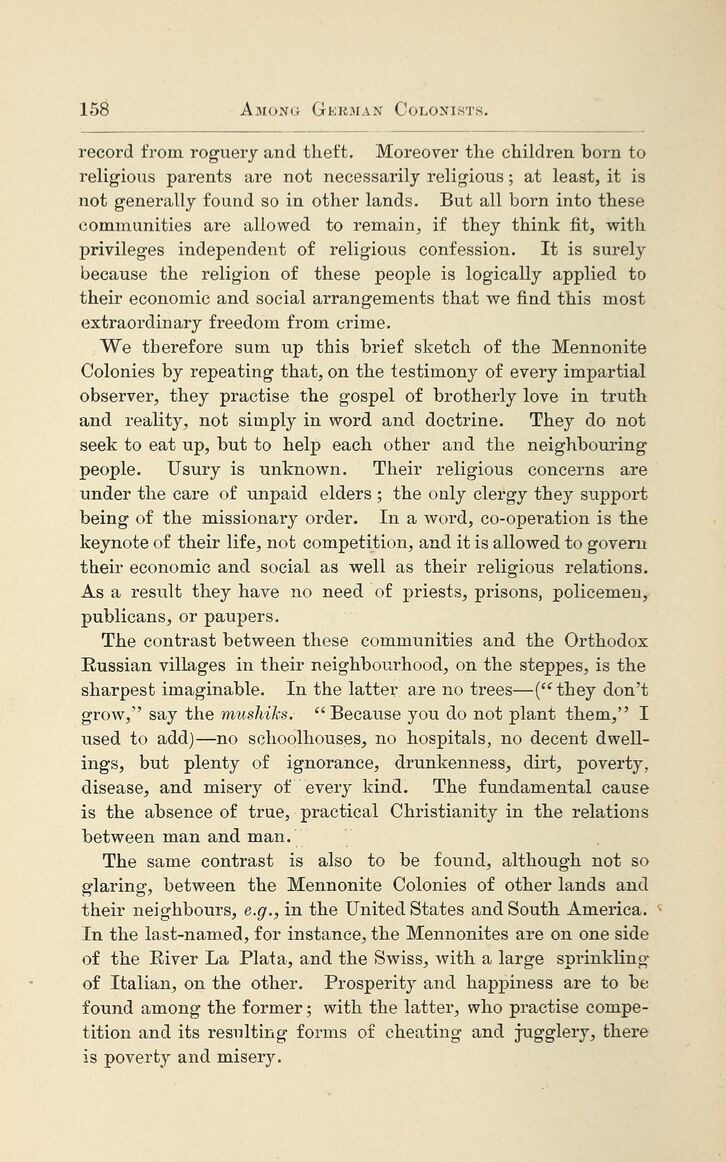
Full resolution (JPEG) - On this page / på denna sida - X. Among German Colonists

<< prev. page << föreg. sida << >> nästa sida >> next page >>
Below is the raw OCR text
from the above scanned image.
Do you see an error? Proofread the page now!
Här nedan syns maskintolkade texten från faksimilbilden ovan.
Ser du något fel? Korrekturläs sidan nu!
This page has never been proofread. / Denna sida har aldrig korrekturlästs.
158
Among German Colonists.
record from roguery and theft. Moreover the children born to
religious parents are not necessarily religious; at least, it is
not generally found so in other lands. But all born into these
communities are allowed to remain, if they think fit, with
privileges independent of religious confession. It is surely
because the religion of these people is logically applied to
their economic and social arrangements that we find this most
extraordinary freedom from crime.
We therefore sum up this brief sketch of the Mennonite
Colonies by repeating that, on the testimony of every impartial
observer, they practise the gospel of brotherly love in truth
and reality, not simply in word and doctrine. They do not
seek to eat up, but to help each other and the neighbouring
people. Usury is unknown. Their religious concerns are
under the care of unpaid elders ; the only clergy they support
being of the missionary order. In a word, co-operation is the
keynote of their life, not competition, and it is allowed to govern
their economic and social as well as their religious relations.
As a result they have no need of priests, prisons, policemen,
publicans, or paupers.
The contrast between these communities and the Orthodox
Russian villages in their neighbourhood, on the steppes, is the
sharpest imaginable. In the latter are no trees—(" they don’t
grow," say the mushiks. "Because you do not plant them," I
used to add)—no sclioolhouses, no hospitals, no decent
dwellings, but plenty of ignorance, drunkenness, dirt, poverty,
disease, and misery of every kind. The fundamental cause
is the absence of true, practical Christianity in the relations
between man and man.
The same contrast is also to be found, although not so
glaring, between the Mennonite Colonies of other lands and
their neighbours, e.g., in the United States and South America. c
In the last-named, for instance, the Mennonites are on one side
of the River La Plata, and the Swiss, with a large sprinkling
of Italian, on the other. Prosperity and happiness are to be
found among the former; with the latter, who practise
competition and its resulting forms of cheating and jugglery, there
is poverty and misery.
<< prev. page << föreg. sida << >> nästa sida >> next page >>